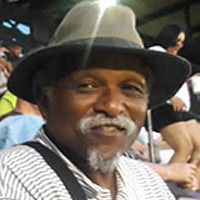Like you, I am very concerned about the direction the Bush administration is leading our country and the impact of its policies on world developments.
I was fortunate to be a participant at the 6th World Social Forum in Caracas, Venezuela, this January.
Choosing among the forum’s many events, the group I was a part of — U.S./Cuba Labor Exchange — focused on labor’s role as a change agent. At the first session I attended, a speaker asked: What have these forums accomplished, or are we simply debating? Someone responded that the forum’s role has not been to take definitive positions in its own name — instead, various points of view from nongovernmental organizations, labor, environment and community groups are debated and analyzed, and through this process anti-neoliberal and anti-imperialist positions have emerged.
Examples: Opposition to the World Economic Forum attended by the developed countries in Davos, Switzerland, in 2001 and broad opposition to the World Trade Organization (WTO) by labor and others in Seattle in 1999, reflected the impact of the World Social Forum. It has become more difficult to implement stealth austerity policies without the world knowing and condemning them.
This year, in addition to Venezuela, forums were held in Mali and Pakistan. Previous forums were held in Brazil and India. These countries are confronted with enormous social and economic problems that require significant change to be alleviated.
The World Social Forums are not about any particular country, but the countries hosting them, thus far, give strong evidence of the need to end inequality and poverty. The rejecting of the status quo and the searching for answers give power to the forums’ slogan: Another World Is Possible.
The Venezuela forum was set in a country whose president, Hugo Chavez, was briefly deposed in a coup in 2002. Within 48 hours he was arrested and released, due in large part to the support of the people who took to the streets in his defense. Venezuela is a country of immense oil wealth that the Chavez government is using, as never before, for its people’s well being. Rich oligarchs and professionals resent the spreading of the wealth.
Venezuela’s contribution to building a new world is through participatory democracy. The people are armed with a new constitution that they helped to draft. The indigenous people, long thought of as invisible, now participate in the building of this democracy. Information now is produced in their languages. In a population of 24 million a campaign is under way to win Chavez 10 million votes in the upcoming election.
In a country where 80 percent of the people live in poverty, missions such as Barrio Adentro deliver free health care. Cuba has provided 20,000 doctors towards helping to meet Venezuela’s health needs.
Urban land cooperatives are being established that work together to benefit each other. I visited adult education classes where proud students relished being educated for the first time. I was told Venezuela is recognized by the United Nations as having overcome illiteracy. Its goal now is to achieve a sixth-grade educational level among its population. I also visited a university where working-class students are receiving a college education.
I saw a textile shop where the supervisors are selected by the workers and are paid the same wages as the workers. I asked if equal pay might cause problems in the future and was told they did not know. Much is new to them; they are experimenting.
Venezuela is a dynamic country. The people can see and feel the changes in their lives. But do not be deceived. The opposition is there. Just as they attempted to throw the country in chaos following the unsuccessful coup by withholding technical skills necessary to produce oil, it’s a safe bet they would do so again, if the opportunity presented itself and regaining power seemed possible.
But with the continued support of the people and the major labor federation, the UNT, the Bolivarian revolution appears confident of succeeding.
We in the U.S. continue to face job losses from the likes of General Motors and Ford, failing pension plans and inadequate health care, while at the same time we are told by the Bush administration and its mouthpieces that the economy is on the upswing. It becomes clearer each day that working people’s interest is not the interest of this administration.
We would do well to study the Venezuelan experiment. I think we will find the people’s needs are truly being given top priority there, and as long as they are, the people will participate in and defend the process that is unfolding.
Much of what has crystallized in the World Social Forum — anti-imperialism, anti-neoliberalism and progressive social and regional integration — is being experimented with in Venezuela. It has every right to do so especially with the results already accomplished by the people.
It is our responsibility, as conscious human beings, to do all we can to ensure our government does not intervene to destroy the Venezuelan people’s revolution.
Shelby Richardson is a public worker and trade unionist in Chicago.









Comments